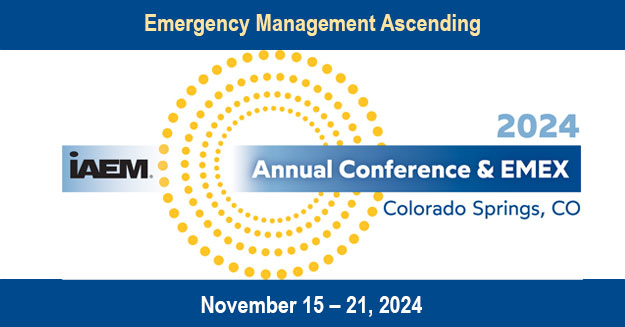Stories after disaster survival: Preparing, heeding warnings, and self-reliance
DOI:
https://doi.org/10.5055/jem.2018.0359Keywords:
disaster survivors, emergency preparedness, heeded warnings, rural-self-relianceAbstract
Objective: The purpose of the study was to examine the content of stories told by people personally impacted by disasters.
Design: Semistructured, qualitative interviews. Setting: Northwest part of a mid-south state.
Participants: Fourteen disaster survivors who were recruited through their attendance at an emergency preparedness-related fair.
Main Outcome Measures: Interview schedule based on previous research using the family resilience framework.
Results: Three themes emerged: prior emergency preparation, heeding warnings of impending disaster, and rural self-reliance.
Conclusions: Participants had made prior emergency preparedness plans, but their personal experiences led to them adjusting their plans, or making more relevant plans for future disasters. Participants expressed the importance of sharing their experiences with family and community members, expressing hope that others would learn, vicariously rather than firsthand, from their experiences.
References
Schipper L, Pelling, M: Disaster risk, climate change and international development: Scope for, and challenges to, integration. Disasters. 2006; 30: 19-38.
National Health Security Strategy: National health security strategy and implementation plan 2015-2018. United States Department of Health and Human Services (USDHHS) Web site. Available at http://www.phe.gov/Preparedness/planning/authority/nhss/Pages/default.aspx. Accessed September 28, 2017.
Federal Emergency Management Agency: Federal Emergency Management Agency (FEMA) 2013 budget request. Available at http://www.fema.gov/pdf/about/budget/fema_fy2013_bib.pdf. Accessed September 28, 2017.
Thomalla F, Downing T, Spanger-Siegfried E, et al.: Reducing hazard vulnerability: Towards a common approach between disaster risk reduction and climate adaptation. Disasters. 2006; 30: 39-48.
Murphy ST, Cody M, Frank LB, et al.: Predictors of emergency preparedness and compliance. Disaster Med Public Health Prep. 2009; 3(2): 1-10.
Sattler DN, Kaiser CF, Hittner JB: Disaster preparedness: Relationships among prior experience, personal characteristics, and distress. J App Soc Psychol. 2000; 30(7): 1396-1420.
Killian T, Moon Z, McNeill C, et al.: Older adults: Emergency preparedness of persons over 50 years old: Further results from the health and retirement study. Disaster Med Public Health Prep. 2017; 11(01): 80-89.
O’Brien G, O’Keefe P, Gadema Z, et al.: Approaching disaster management through social learning. Disaster Prev Manag. 2010; 19(4): 498-508.
Mangione GR, Capuano N, Orciuoli F, et al.: Disaster education: A narrative-based approach to support learning, motivation and students’ engagement. J e-Learning Knowledge Soc. 2013; 9(2): 129-152.
Kohn S, Eaton JL, Feroz S, et al.: Personal disaster preparedness: An integrative review of the literature. Disaster Med Public Health Prep. 2012; 6(03): 217-231.
Masozera M, Bailey M, Kerchner C: Distribution of impacts of natural disasters across income groups: A case study of New Orleans. Ecol Econ. 2007; 63(2-3): 299-306.
Flint CG, Stevenson J: Building community disaster preparedness with volunteers: Community Emergency Response Teams in Illinois. Nat Hazards Rev. 2009; 11(3): 118-124.
Garrison MEB, Sasser DD: Families and disasters: Making meaning out of adversity. In Cherry K (ed.): Lifespan Perspectives on Natural Disasters: Coping with Katrina, Rita and other Storms. New York: Springer, 2009: 113-132.
Knowles R, Sasser DD, Garrison MEB: Family resilience and resiliency following hurricane Katrina. In Kilmer RP, Gil-Rivas V, Tedeschi RG, et al. (eds.): Meeting the Needs of Children, Families, and Communities Post-Disaster: Lessons Learned from Hurricane Katrina and Its Aftermath. Washington, DC: American Psychological Association, 2010: 97-115.
Walsh F: Family resilience: Strengths forged through adversity. In Walsh F (ed.): Normal Family Processes. 3rd ed. New York: Guilford Press, 2003: 399-423.
Chase SE: Narrative inquiry: Multiple lenses, approaches and voices. In Denzin NK, Lincoln YS (eds.): The Sage Handbook of Qualitative Research. 3rd ed. Thousand Oaks, CA: Sage Publications, 2005: 651-679.
Paek H, Hilyard K, Freimuth V, et al.: Theory based approaches to understanding public emergency preparedness: Implications for effective health and risk communication. J Health Commun. 2010; 15: 428-444.
Wood M, Mileti D, Kano M, et al.: Communicating actionable risk for terrorism and other hazards. Risk Anal. 2012; 32(4): 601-615.
Kim J, Soo Oh S: Confidence, knowledge, and compliance with emergency evacuation. J Risk Res. 2013; 11(1): 111-126.
Romo-Murphy E, Vos M: The role of broadcast media in disaster preparedness education: Lessons learned in the scientific literature 2002-2012. Media Asia. 2014; 41(1): 71-85.
Fisher AL: Voluntary labor, Utah, the LDS church, and the floods of 1983: A case study. Int J Mass Emerg Disasters. 1985; 3(3): 53-74.
Bundy SJ: Religious congregations in disaster response. J Emerg Manag. 2015; 13(6): 532-538.
Federal Emergency Management Agency: Disaster declarations by year. Federal Emergency Management Agency Web site. Available at https://www.fema.gov/disasters/year. Accessed January 11, 2018.
International Panel on Climate Change: Climate change 2014 synthesis report summary for policymakers. International Panel on Climate Change Web site. Available at http://www.ipcc.ch/pdf/assessment-report/ar5/syr/AR5_SYR_FINAL_SPM.pdf. Accessed January 11, 2018.
Federal Emergency Management Agency: As historic 2017 hurricane season comes to an end, federal support recovery continues. Federal Emergency Management Agency Web site. Available at https://www.fema.gov/news-release/2017/11/30/historic-2017-hurricane-season-comes-end-federal-support-recoverycontinues. Accessed January 11, 2018.
Published
How to Cite
Issue
Section
License
Copyright 2007-2023, Weston Medical Publishing, LLC and Journal of Emergency Management. All Rights Reserved






